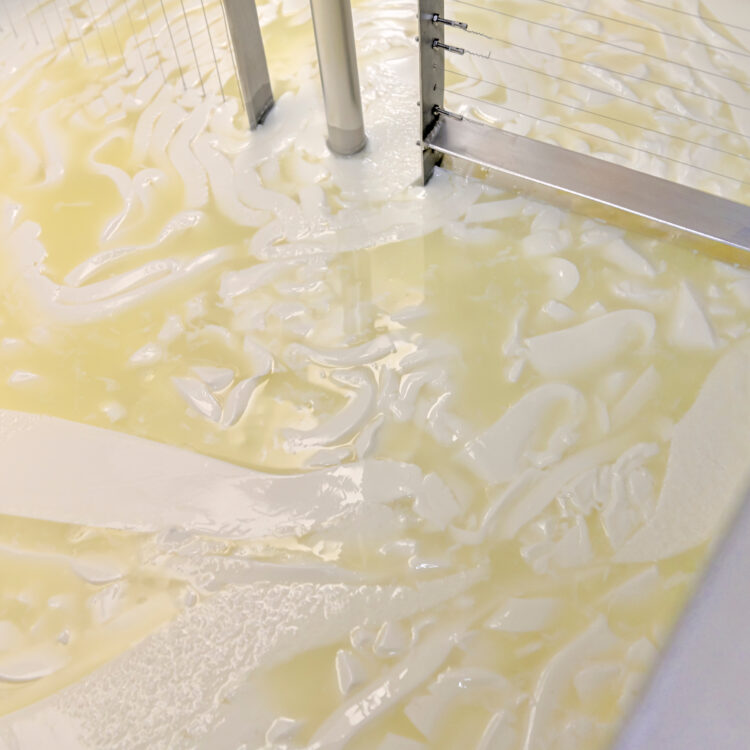Ice Recrystallization Inhibitor from Recycled Cheese-Making Whey
The Problem
Cheese and yogurt production creates a large amount of waste that is expensive to deal with for "small" dairies. One pound of cheese makes nine pounds of whey byproduct, and dairies that make two million pounds of cheese per year are still considered small. Dairy byproducts have reusability as animal feed, field watering, or liquor distilling, but those applications cannot account for the massive amounts of whey coming out of the cheese and yogurt industries.
The Solution
Researchers at the University of Tennessee have identified dairy byproducts as cryoprotective additives to utilize the natural antifreeze proteins found in whey. This innovation takes a glycosated protein from the whey waste stream as a high value product as an antifreezing agent. Dairy waste stream AFPs are a better alternative, because:
- Animal-derived AFPs are dependent on the continued raising and slaughter of livestock, which is considered unsustainable
- Plant-based AFPs are dependent on volatile agricultural outputs and prices
- Insect-based AFPs are a developing industry and require companies to add new facilities and processes, which can be expensive

Benefits
| Benefit |
|---|
| Cheaper to produce by utilizing abundant food production waste and agricultural byproducts |
| Uses byproducts that are being made by the millions of pounds each year and would otherwise go to waste |
| Can be used by frozen food manufacturers to have AFPs that don't require much processing |
| Dairy/cheese/yogurt producers can get rid of their waste product while having a financial benefit |
More Information
- Tyler Newton
- Assistant Technology Manager
- 865-974-1882 | cnewto12@tennessee.edu
- UTRF Reference ID: 24144
- Patent Status:

Innovators
Dr. Toni Wang

Professor, Department of Food Science, College of Arts and Sciences, UT Knoxville
Dr. Wang received her PhD from Iowa State University in Food and Lipid Chemistry. Dr. Wang's research (with a total of ~$13 million funding) is focused on identifying novel and practical solutions for problems and challenges associated with processing, utilization, and functionalities of agricultural products intended for food, feed, biomaterials, and energy uses. She aims to use fundamental chemistry of lipids and proteins in new ways to improve food quality, functionality, safety, and health, and to reduce waste and environmental impact.
Read more about Dr. Toni Wang